
heads, arms or legs— retain their connection to the familiarly corporeal and the skill of their creation.
The Musée Rodin in Paris notes, Convinced of the evocative power of the fragment, Rodin worked the hands or feet of his figures separately. His private collection of antiquities included many archaeological fragments: hands, heads, and torsos... These sculptures influenced his own aesthetic, prompting him to remove the arms or heads from some of his sculptures. The Walking Man, for example, is an enlarged version of St. John the Baptist, without the head and arms which Rodin regarded as superfluous details, liable to detract from the expression of movement he wanted to convey.”
Writing about Rodin and his creation of fragmentary sculpture, the poet Rainer Maria Rilke commented, In the art of sculpture...it is left to the artist to make out of many things one thing, and from the smallest part of a thing, an entirety.” Rodin, himself, said these divine fragments.. move me more profoundly than living persons.”
In his figures, Nathan Mellott refers to deteriorating classical and ancient statuary but they have greater inspiration in heightened awareness of the corporeal. The palms refer to the most common trees in the world’s oldest cities while giving a sense of depth and space for the balletic, aerial bodies. The flat color application was inspired by Etruscan and Grecian painted pottery.
“I look for a quality in my work and others’) which testifies to our contemporary existence; that carries the torch forward. If we hold true that those who came before us are more base or savage than ourselves, then we prompt future generations So happiness timelessness; to hold those same beliefs of us. and sadness in every corner; love, desperation, the poetic and vulgar; simultaneity; the sacred and debased; the deep past and the deep future in the present.
This story is from the {{IssueName}} edition of {{MagazineName}}.
Start your 7-day Magzter GOLD free trial to access thousands of curated premium stories, and 9,000+ magazines and newspapers.
Already a subscriber ? Sign In
This story is from the {{IssueName}} edition of {{MagazineName}}.
Start your 7-day Magzter GOLD free trial to access thousands of curated premium stories, and 9,000+ magazines and newspapers.
Already a subscriber? Sign In

FULL EXPOSURE
Photographer Conor Martin documents the present using photographic methods of the past.
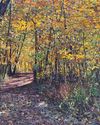
Autumnal Light
The landscapes and nature scenes of painter Jennifer Sowders are irresistibly tactile, filled with varying textures that seem to leap off the canvas.
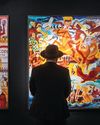
Art for All
Members of Art Dealers Association of America come together for a philanthropic affair.
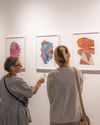
Modern Marketplace
Redwood Art Group brings together the San Diego region for another class-act celebration of contemporary artwork.
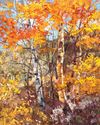
An Enchanting Evening
Scottsdale Artists’ School knows how to throw an art party.
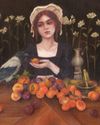
Timeless Tales
Soft, warm undertones underscore the mood of enchantment that runs through Nom Kinnear King’s paintings.
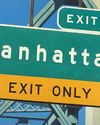
Next Exit New York
Coming off his series that focused on San Francisco and Los Angeles freeway signs, artist Eric Nash’s sights are now set on New York. Now on view at George Billis Gallery's Manhattan location are seven of Nash's new oil paintings and two drawings that explore the signage of New York City freeways. Although Nash's work is tightly rendered, he doesn’t consider himself a photorealist, but rather someone who utilizes those techniques to express ideas.
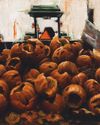
Monster Mash
Vampires, witches, ghouls and all things that go bump in the night are the theme of the exhibition Monster Mash, now at Abend Gallery.
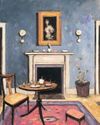
Inside/Outside
Those familiar with Geoffrey Johnson's populated by inky figures and trailing shadows that bleed into the wet streets, and architectural elements obscured to varying degrees by the misty atmosphere.
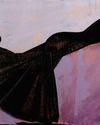
Bold Figures; Bold Color
For Brooklyn based painter J Louis, it’s all about balance, which can mean many different things in a composition, but for Louis, it’s about balancing his female figures among a unique landscape of color.